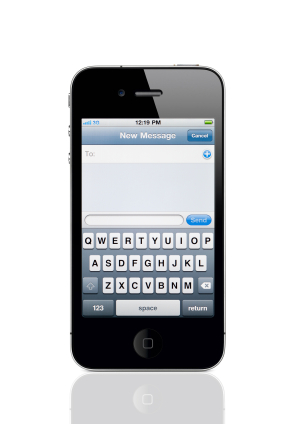 In a dispute involving claims of monopolistic violations regarding booking A-list DJ’s at nightclubs, the Defendants did not take any steps to preserve or review text messages on an iPhone for relevance that was lost. Christou v. Beatport, LLC, 2013 U.S. Dist. LEXIS 9034, 36-39 (D. Colo. Jan. 23, 2013).
In a dispute involving claims of monopolistic violations regarding booking A-list DJ’s at nightclubs, the Defendants did not take any steps to preserve or review text messages on an iPhone for relevance that was lost. Christou v. Beatport, LLC, 2013 U.S. Dist. LEXIS 9034, 36-39 (D. Colo. Jan. 23, 2013).
While the ensuing motion practice did not have the fist-pumping energy of an A-list nightclub, the issue of spoliation sanctions is worthy of a late night freestyle eDiscovery rap battle.
Cueing Up a Litigation Hold
The Plaintiffs served a litigation hold letter on the Defendants at or about the same time as the beginning of the lawsuit in December 2010, which identified text messages as ESI to preserve. Christou, at *36-37.
The Plaintiffs sought an adverse jury instruction for the failed preservation of text messages, because 1) the Defendants took no steps to preserve the text messages on the Defendant’s iPhone; 2) Defendants did not disclose any text messages in their May 2011 discovery responses; and 3) The Defendant claimed that he lost his iPhone in August 2011, thus also loosing and any text messages saved on it. Christou, at *37.
Spinning Relevance and Review
 The Defendants argued whether any relevant text messages were lost pertaining to the litigation was “sheer speculation,” because the Defendant did not use text messages to book DJ’s. Id.
The Defendants argued whether any relevant text messages were lost pertaining to the litigation was “sheer speculation,” because the Defendant did not use text messages to book DJ’s. Id.
The Defendants also argued that they “responded fully” to the May 19, 2011 discovery, thus “showing” that there were no responsive text messages. Id.
The Court stated that the Defendant’s claim he “did not use texting to book DJ’s is hardly proof that his text messages did not contain relevant evidence.” Id.
The Court turned up the volume on the fact that just because the Defendants stated that they “found no responsive text messages,” did not address whether defense counsel reviewed the Defendant’s text messages and determined that the text messages “contained nothing of relevance.” Christou, at *37-38.
Setting the Master Level on Sanctions
The Court explained that spoliation sanctions are proper when “(1) a party has a duty to preserve evidence because it knew, or should have known, that litigation was imminent, and (2) the adverse party was prejudiced by the destruction of the evidence.” Christou, at *38, citing Turner v. Public Serv. Co. of Colorado, 563 F.3d 1136, 1149 (10th Cir. 2009) (quoting Burlington N. & Santa Fe Ry. Co. v. Grant, 505 F.3d 1013, 1032 (10th Cir. 2007)).

The Court found the Defendants had a duty to preserve the text messages, which they did not do. Christou, at *38.
Moreover, the Court held, “Those text messages, few as they might have been, should have been preserved and either provided to the plaintiffs or potentially made the subject of further proceedings before the Court.” Id.
The Court had no reason to believe the phone was not lost on accident or the failure to preserve was just negligent. Christou, at *38-39.
However, the Court had to determine an appropriate sanction. The Court explained:
A commercial party represented by experienced and highly sophisticated counsel cannot disregard the duty to preserve potentially relevant documents when a case like this is filed. However, an adverse jury instruction is too harsh and is unwarranted as a sanction for the negligent “spoliation” of evidence in the circumstances presented here.
Christou, at *39.
The Court mixed the following sanction: The Plaintiffs could introduce the litigation hold letter and that the Defendants failed to preserve the text messages. Id. Further, the Plaintiffs could “argue whatever inference they hope the jury will draw.” Id. Additionally, the Defendants could offer admissible evidence to explain the loss and argue that no “adverse inference should be drawn.” Id.
Bow Tie Thoughts
The duty to preserve and mobile devices can potentially give lawyers serious stress. Attorneys should discuss with clients how they use technology, how they communicate and involve consultants in ensuring the preservation of relevant ESI. Additionally, if a litigation hold letter specifies a type of data, it is advisable to conduct a reasonable investigation whether any relevant information exists on the identified media.
Litigation hold letters can be multiple page lists including every possible form of ESI known to man. While no one wants data to go missing, or to not include a possible data source, it is always a good plan for parties to meet and confer over possible data sources to narrow what data needs to be preserved and collected.
Finally, it is important to remember data can exist in multiple locations. While a smartphone such as an iPhone might be lost, the text messages might be backed-up on a computer when the iPhone was synced. It is also worth investigating whether the text messages were iMessages that possibly could be backed-up in iCloud.
